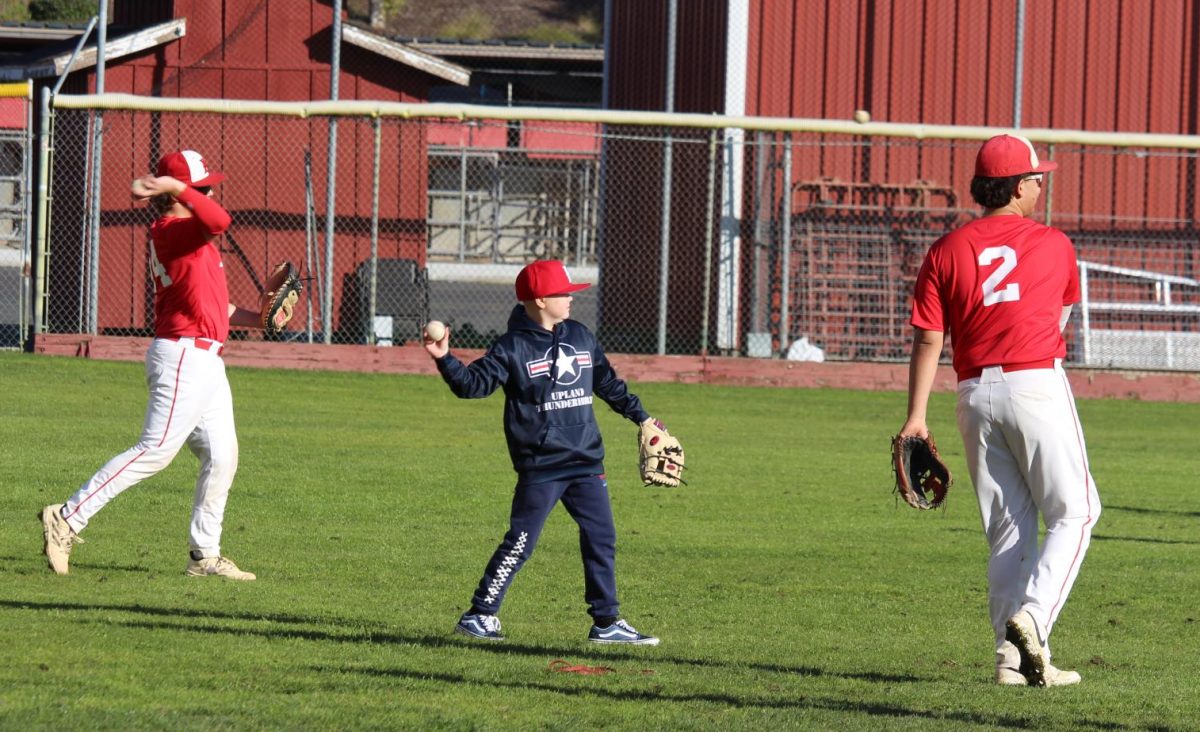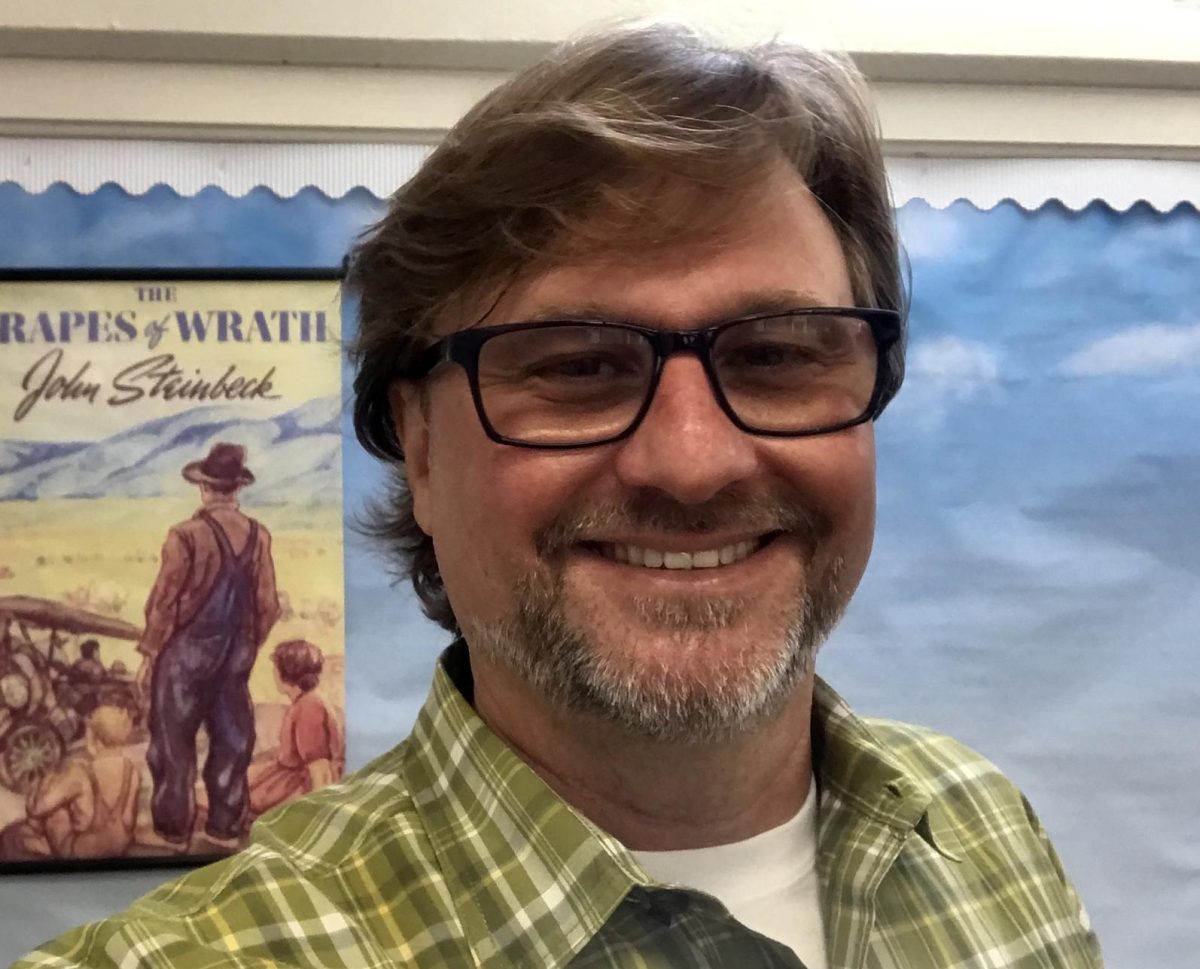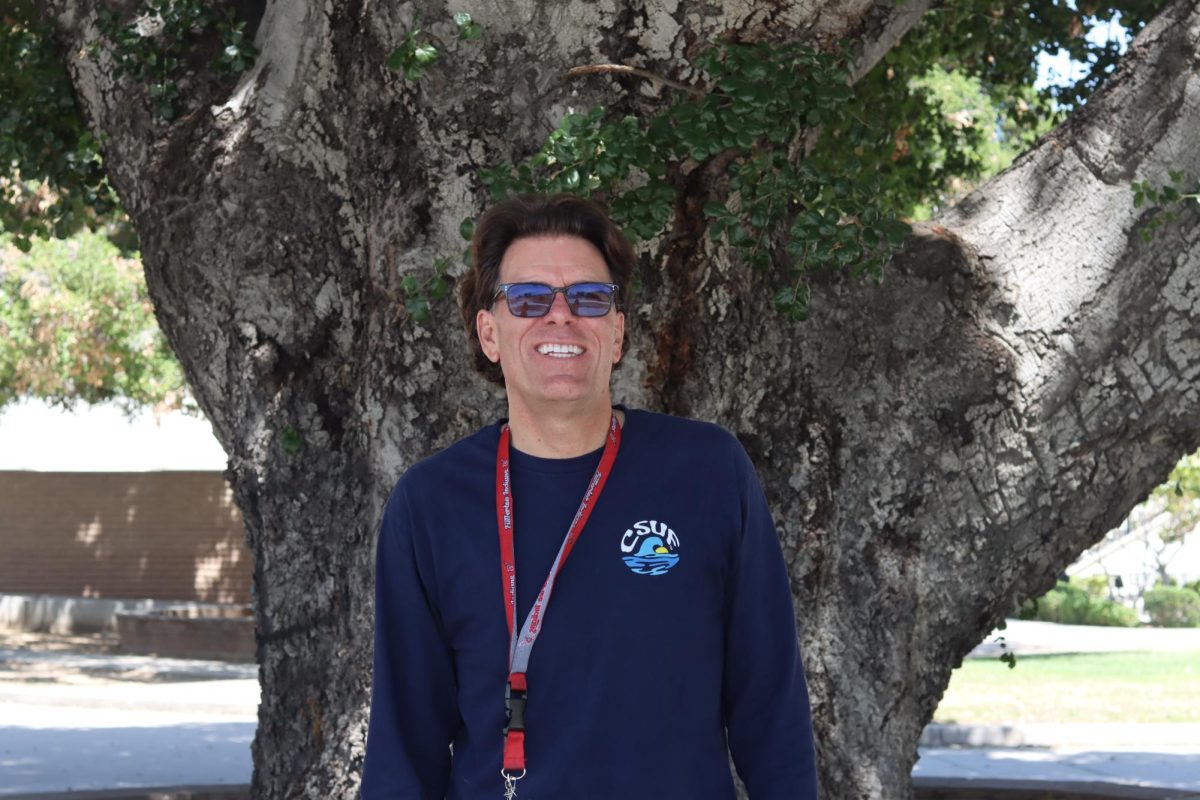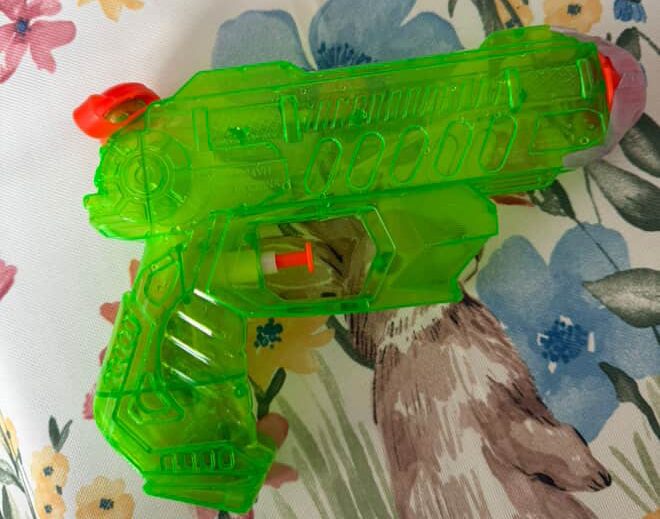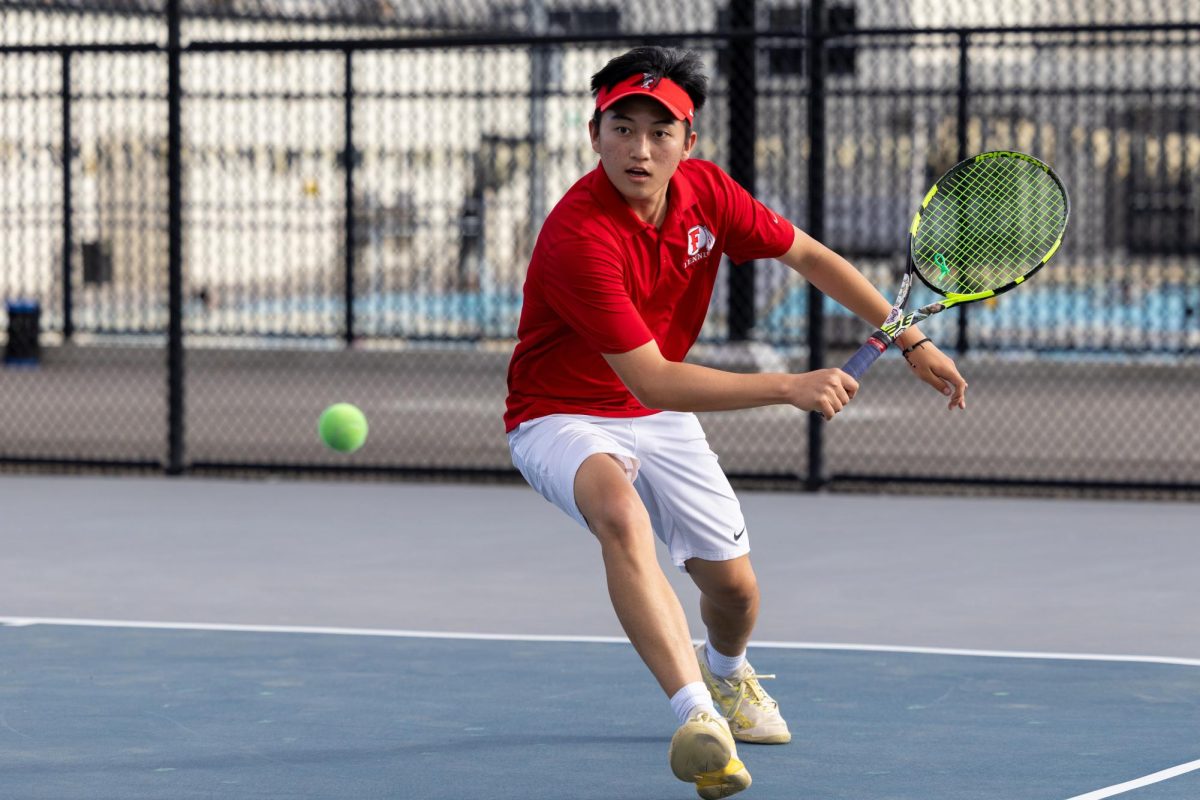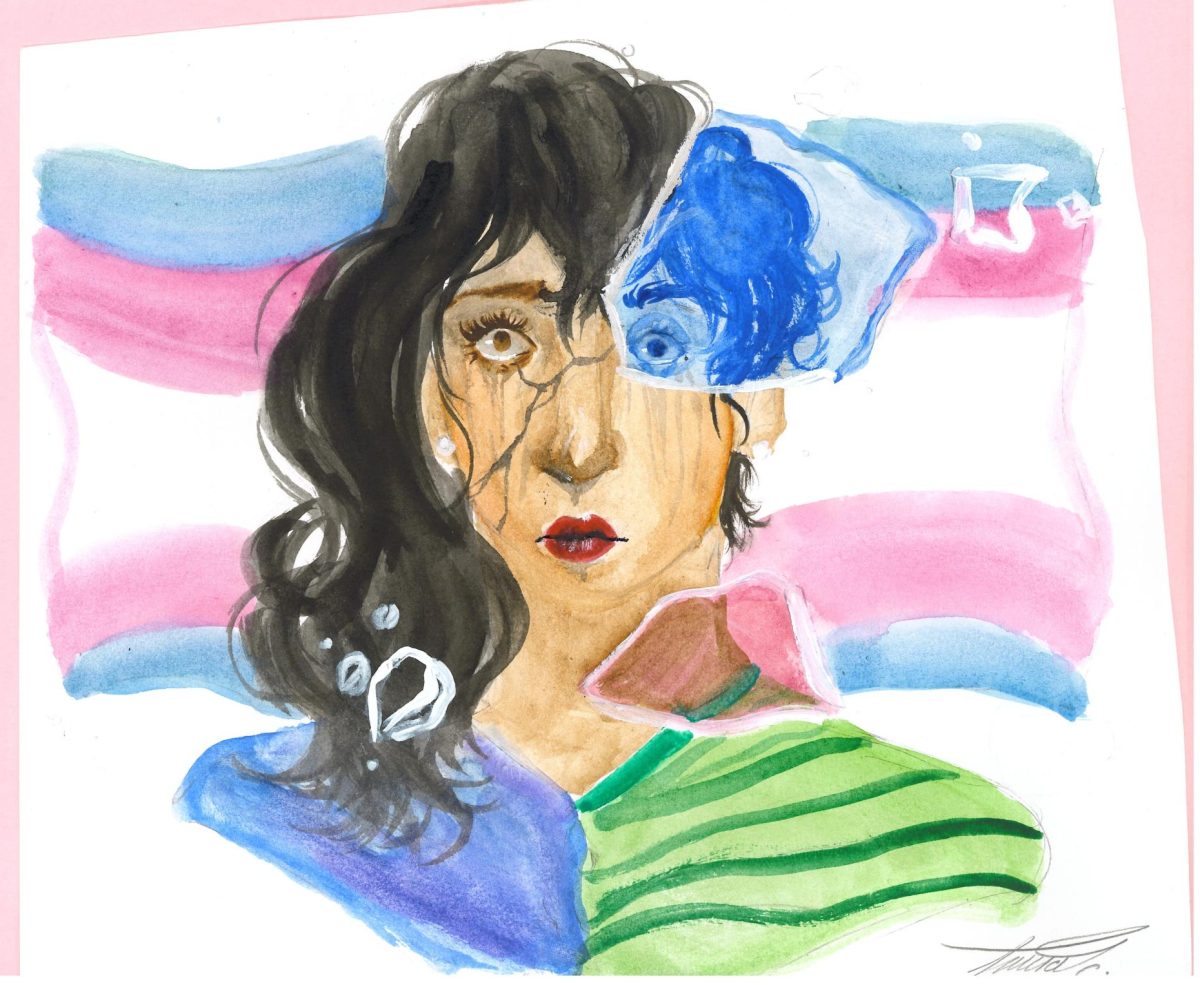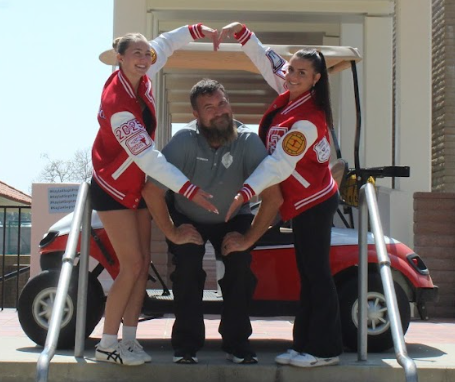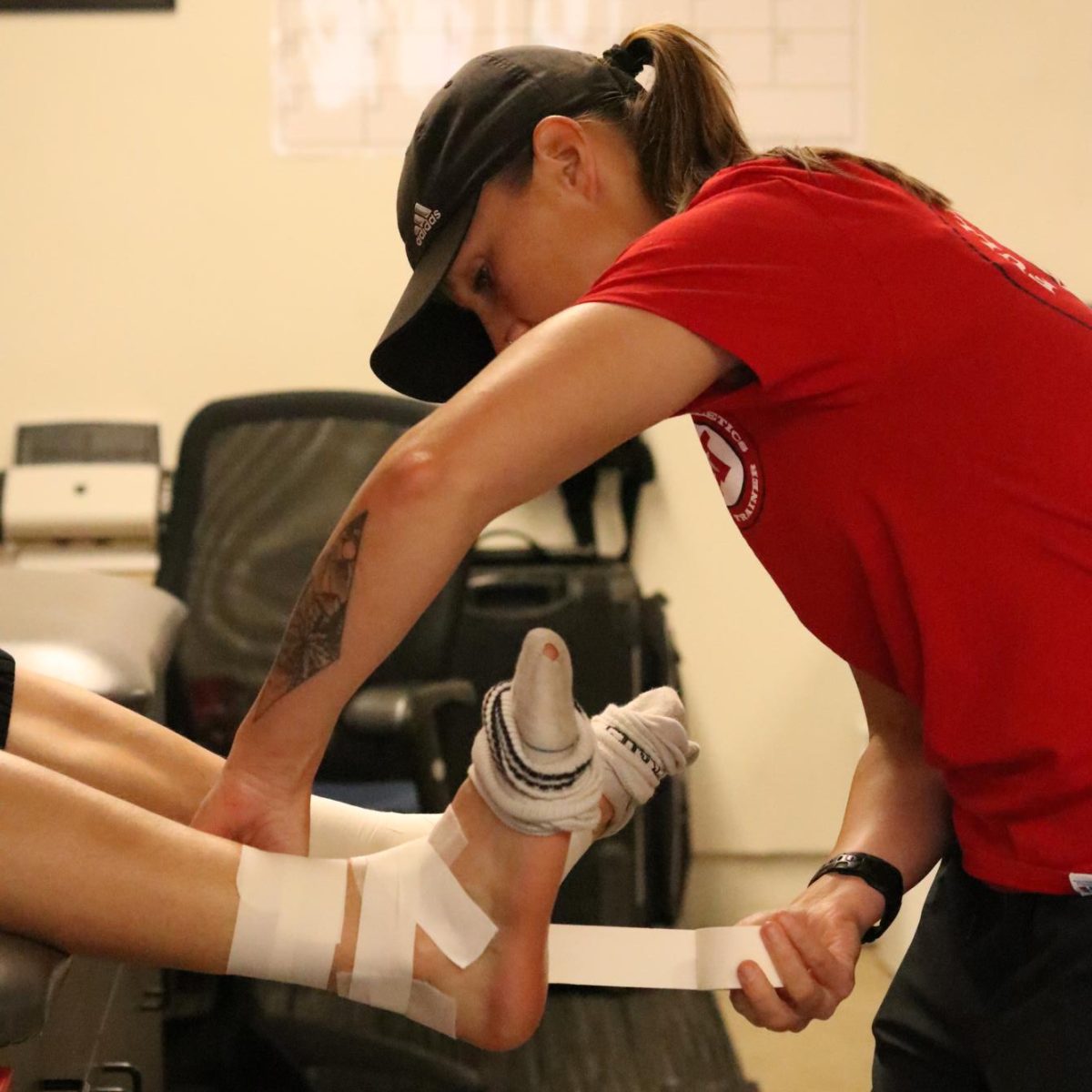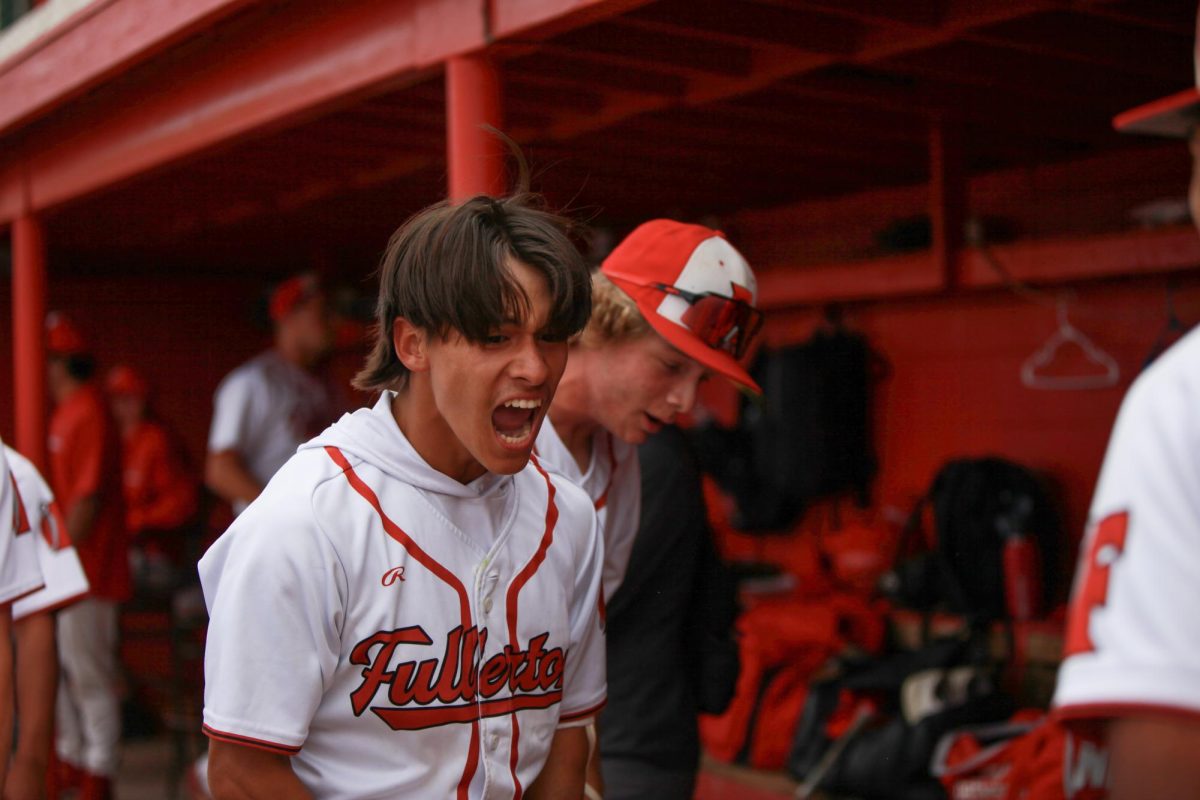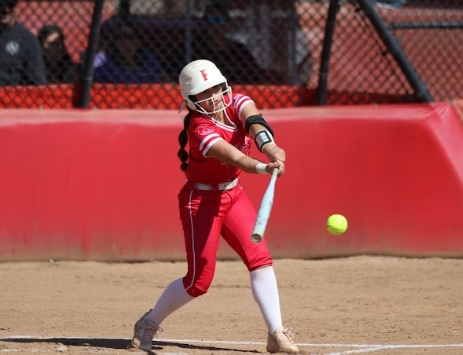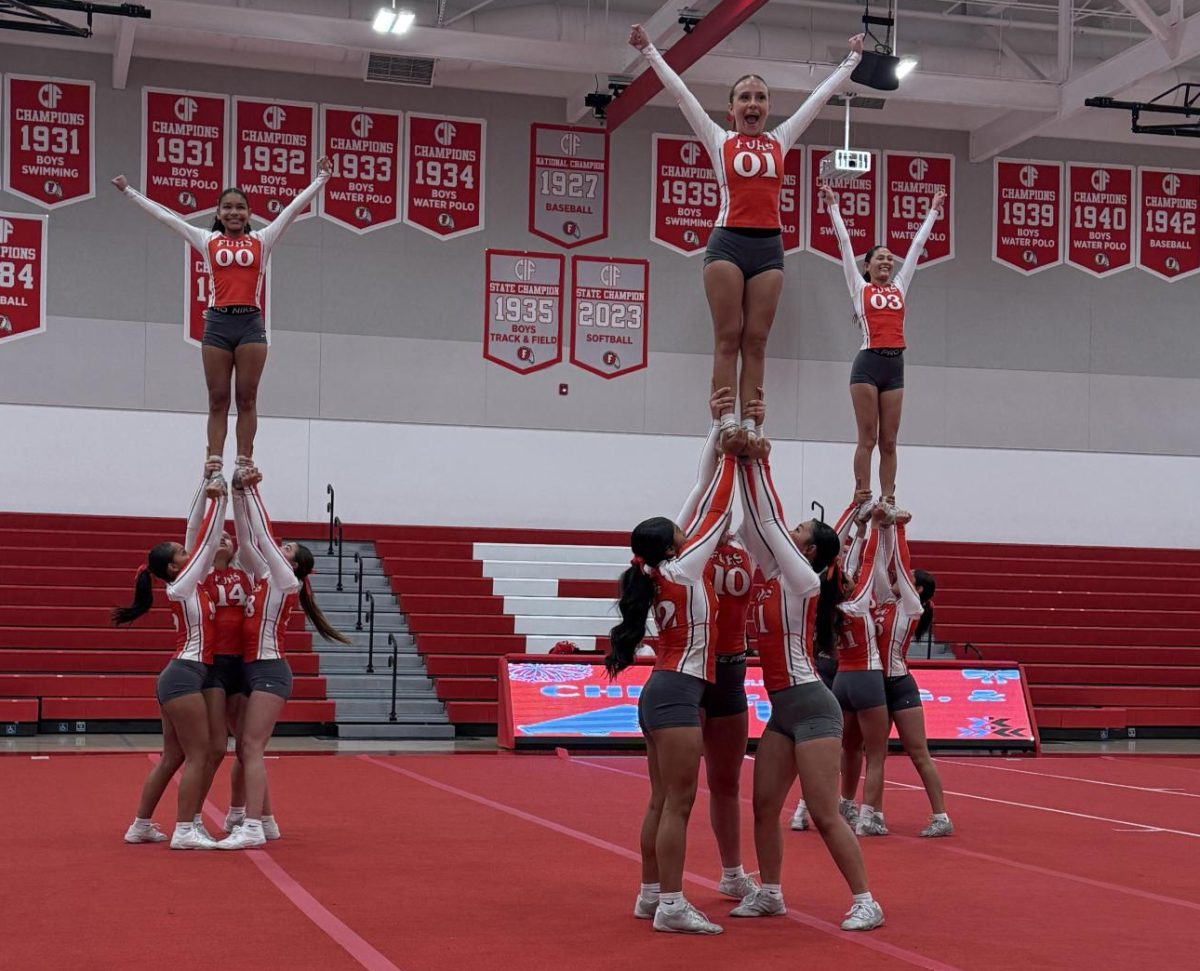Baseball Therapy
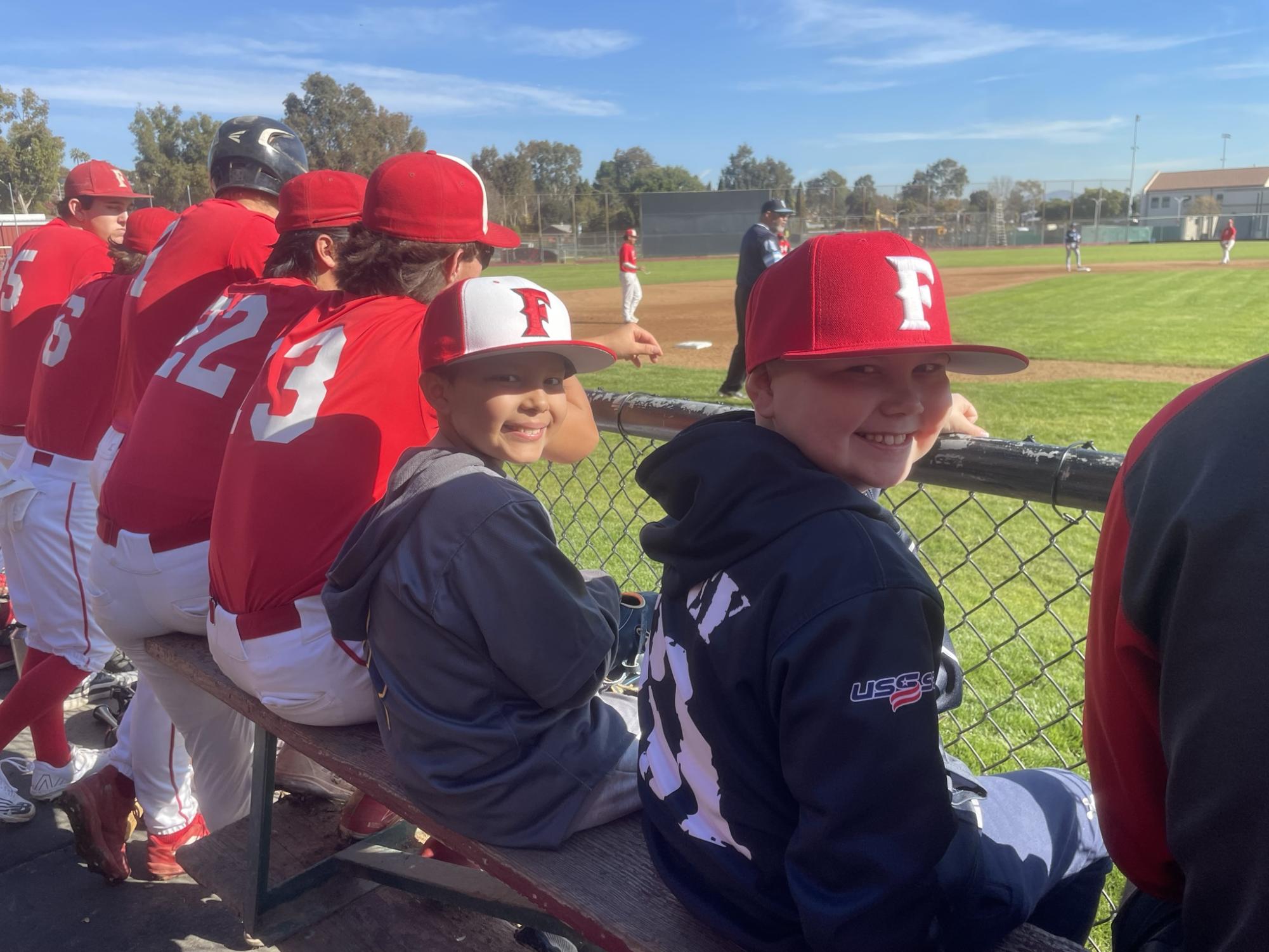
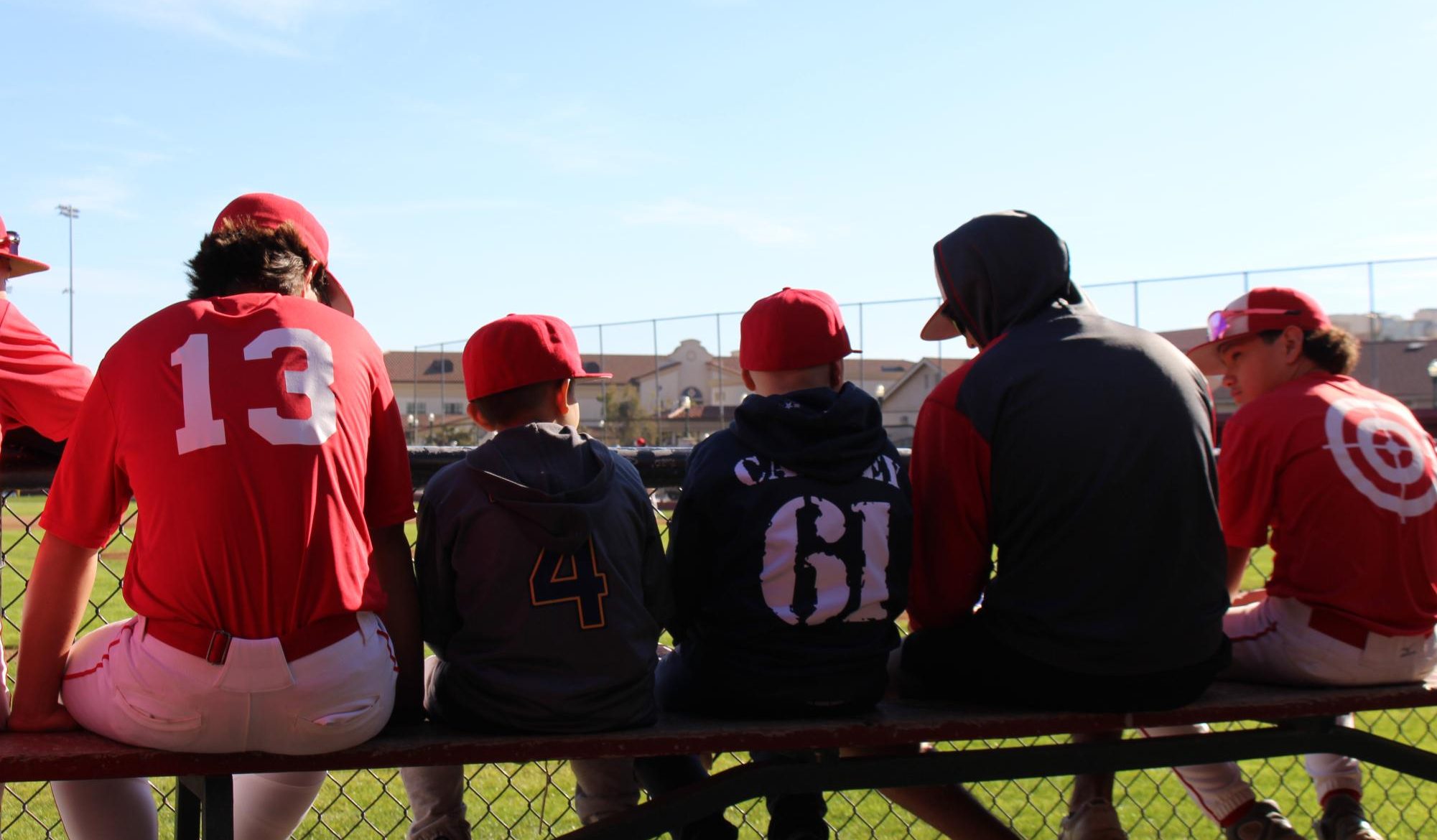
When Shaun Hill took over as the head baseball coach three years ago, he made it a priority to become involved with the community. So, when junior pitcher David Padgett had to leave practice early to volunteer at the Gold Rush Cure Foundation—an organization that supports children and their families affected by childhood cancer—Hill wanted to give back. With the help of Gold Rush organizer Marci Padgett, the baseball team connected with Mikah Carney and Easton Arceo, two 10-year-olds with cancer who love baseball. However, what made the interaction more meaningful was that juniors Luke Galvan and David Padgett both had cancer at age 7. The two pitchers understood what the boys were going through and also understood the importance baseball plays in their young lives.
To tell the stories about battling cancer and about supporting families dealing with cancer, opinion editor Elie Chung interviewed the FUHS players and Sarah Carney, mom of 10-year-old Mikah while editor-in-chief Reagan Glidewell interviewed Gold Rush organizer Marci Padgett. We’re grateful for everyone’s willingness to tell their stories.
To help bring hope to children with cancer, the Gold Rush Cure Foundation delivers pots of gold (gifts) and provides support for families. Readers can donate here and volunteer to deliver, shop or prep here.
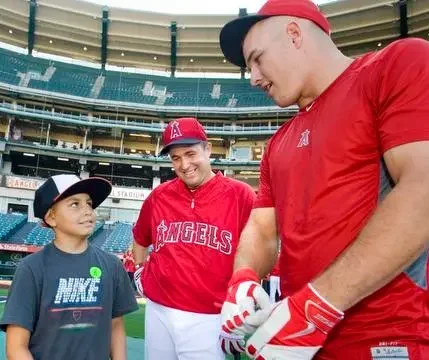
When junior Luke Galvan was in first grade, his parents knew something was wrong. He had developed a loud, unhealthy snore caused by cancer in his sinus. After removing the mass from his nose and removing his tonsils, the doctors found more cancer in Galvan’s lymph nodes. He immediately started chemotherapy.
“It was on a Tuesday [when they found out], and I was getting treatment by Friday. I was in shock,” Galvan said.
Galvan was diagnosed with Burkitt lymphoma, a type of cancer that can affect the liver, spleen, bone marrow and spread to the brain and spinal fluid. He was hospitalized at CHOC in Orange for six weeks. Treatment continued for six months.
“I think about it now that I’m so much older because I was only 7 when it happened,” Galvan said. “But it’s obviously something that was such a huge part of my life that I can’t just ignore it. I think about it a lot.”
Despite his battle with cancer at such a young age, Galvan says there was one thing that helped him feel hope and motivation.
“CHOC was so close to Angel Stadium that Angels players would often come by,” Galvan said. “One of the players was Mike Trout. I had a pretty close bond with Trout at one point.”
Angels players would visit Galvan and joke about his Los Angeles Dodgers clothing and pillow. They talked baseball, making him feel both like a special fan and like a member of the team.
When he was able to leave the hospital, Galvan was invited on the field to watch the Angels practice. For Galvan, Trout was extending his hand, helping him get up and reach the finish line, no matter how distant or daunting.
Galvan says he’s always hoped to make an impact like Mike Trout did for him—not because Trout was Rookie of Year or earned multiple MVP titles. Instead, Galvan knew that Trout understood that baseball is a language that can motivate and unite those in need.
Nine years later, Galvan had the chance to pay forward a little bit of that healing baseball magic when he and the rest of the Fullerton varsity baseball team met Easton Arceo and Mikah Carney—two 10-year-olds who are fighting cancer but love baseball.
Galvan knew exactly what the boys were facing, and their excitement to meet the baseball team paralleled Galvan’s own experiences.
“I just looked at them because that’s how I was. Seeing them and seeing where I’m at today was almost refreshing in a way, seeing how far I’ve come from that,” Galvan said. “I was also a symbol of hope for them too knowing that they eventually can be like me: older and healthy.”
Galvan and the rest of the baseball team befriended the pair, inviting Mikah and Easton to stretch, catch and talk with each other. Multiple players gave their gear to the boys to use.
“They’re just two beams of joy. You can tell they’re so happy to be there,” Galvan said. “It weirdly felt like they were already part of the team, because it just felt like they kind of belong.”
Galvan continues to keep in touch with Easton Arceo and reaches out as much as he can throughout the boy’s treatments.
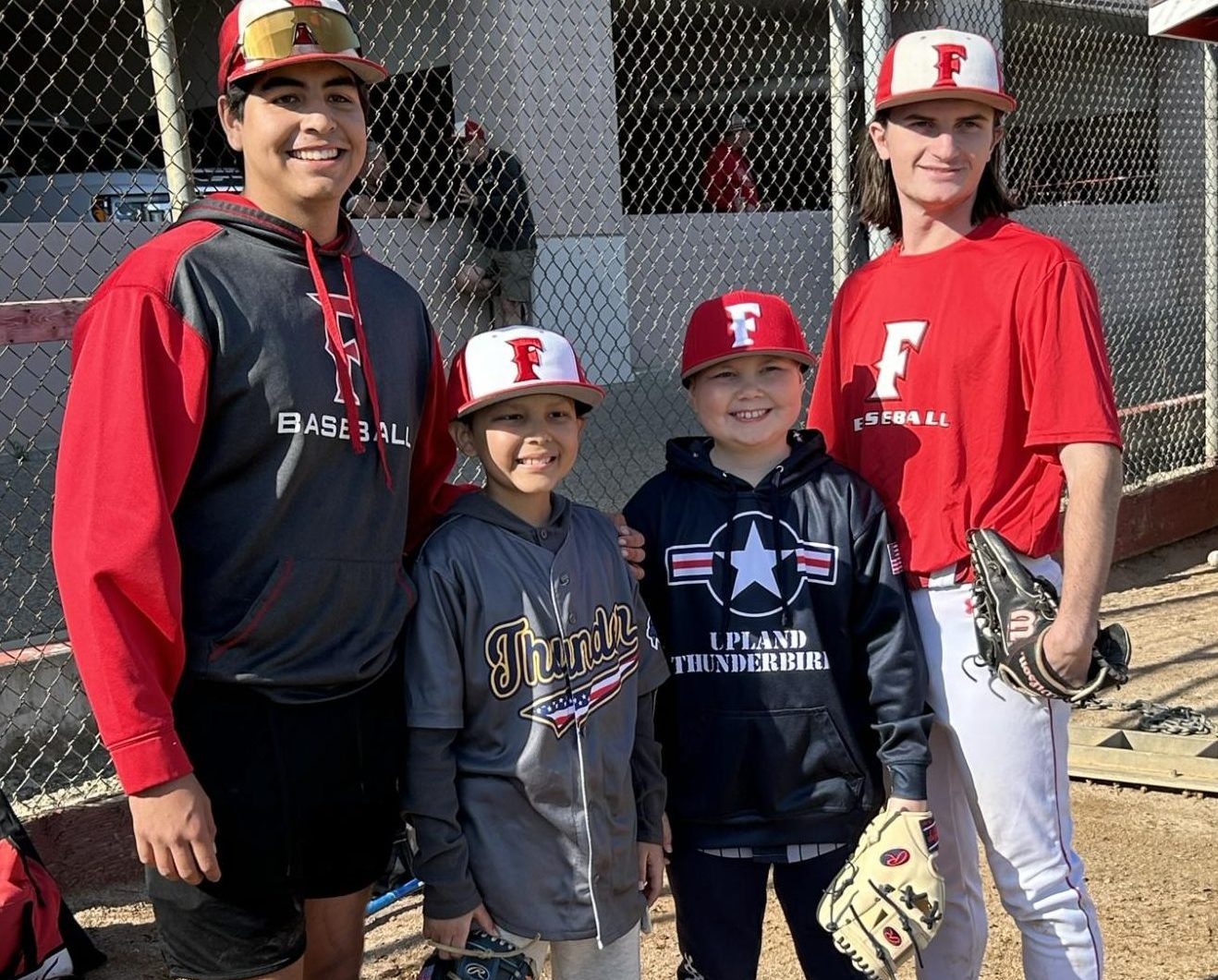
Junior Luke Galvan wasn’t the only baseball player who was aware of the importance of baseball to these children.
Junior pitcher David Padgett is also a cancer survivor. In fact, David’s mother Marci Padgett set up the meeting with the team through her organization Gold Rush Cure Foundation.
FUHS baseball coach Shaun Hill knew that Galvan and Padgett had had childhood cancer, so he was happy to invite the children to warm up with the team and sit in the dugout during the Jan. 13 game against El Rancho.
When David Padgett learned that his mother would be bringing two boys with cancer to their game, he was anxious. Despite volunteering at the Gold Rush Cure Foundation with his mother, Padgett seldom interacts one-on-one with the patients.
“I deal with a lot of survivor’s guilt. It hurts, it just really hurts me. But I do try to help the foundation because I went through cancer,” said Padgett, who was diagnosed with acute lymphoblastic leukemia when he was 7. His treatment continued for three years.
Gold Rush prioritizes gifting children with cancer and their siblings multiple gifts that they request with the help of volunteers. Padgett was a recipient of the gifts when he was 9 and remained involved when his mother connected with the organization’s founder Sandy Barker.
“Honestly, I’m more of a moral support for my mom,” David said. “I do outside activities to support the Gold Rush gifts rather than being direct with the children.”
But David was happy to connect with Mikah and Easton. “When I met Mikah and Easton for the first time, it was at the field. I really saw myself in them,” Padgett said. “I was told by doctors I couldn’t play baseball and I still played.”
Padgett said that even though he also went through childhood cancer, he was able to connect to Mikah and Easton more through baseball. He intentionally avoided discussing their illnesses.
“It’s these kids with the team. They’ve talked about cancer all the time. They want to talk about baseball. Something they don’t talk about all the time,” Padgett said.

Junior David Padgett dealt with leg pains starting in the first grade. He had just started playing baseball and his family assumed it was growing aches. Not long after, however, he suffered an ear infection that escalated into a ruptured eardrum.
For Padgett, leg pains, a ruptured eardrum, and frequent headaches did not turn out to be typical childhood ailments. Marci Padgett—David’s mom—said it was the first day of spring break in 2014 when their family’s lives changed.
“We were scheduled to go back in to get the ear infection looked at. We were driving up the 57 freeway, and he was still in a booster car seat,” Padgett said. “He leaned over in his car seat and he said, ’My heart hurts, my heart hurts.’ He just started crying and crying and crying and he wouldn’t stop.”
The two went to St. Jude Hospital where David was diagnosed with acute lymphoblastic leukemia. He started chemotherapy that same night at CHOC hospital in Orange.
“Nothing prepares you for that,” Marci Padgett said. “You don’t think that’s ever going to happen with your child.”
David’s treatment lasted over two and a half years. Marci went to every appointment with her son. She said that as a parent, the mental battle is unlike any other.
“You have this child, and that’s your job. You’re supposed to be protecting this kid and raising this child, and be able to fix their problems for the most part. That was the most helpless feeling of He’s sick and I can’t do anything to make it better,” Padgett said. “Nothing except take him in and make him feel worse. That’s the only thing that will in the long run make him feel better. It’s so mental.”
Padgett’s experiences motivated her to connect with the Gold Rush Cure Foundation. Toward the end of David’s treatments, he received a Pot of Gold—gifts that the Foundation gives to children and their families going through treatments.
“David’s favorite restaurant at the time was In N Out, so [the President of Gold Rush Foundation] Sandy Baker planned to deliver an In N Out Burger. [David’s brother] Josh got to come,” Padgett said. “David is not a material person as far as wanting a lot of things. That’s the whole point of a Pot of Gold is giving the kids something that maybe the parents can’t afford. David’s choice was Legoland passes for all of us.”
Padgett said that after that day, she became more apt to volunteer. She started in social media, and five years later, she is the National Operations Director. Padgett coordinates the Pot of Gold deliveries throughout the nation. The Gold Rush Cure Foundation is now in 137 hospitals nationwide.
“I keep in touch with the oncologists from when David was in treatment which they love because they love hearing how he is doing. He’s a success story for them,” Padgett said. “They love hearing about when I see some of their other kids because they only see them in the clinic or in the hospital. When they get to see a photo of them at home with their family opening the gift not in the hospital, not connected to a bunch of tubes, smiling. It’s really special for them.”
Gold Rush reached its 1,200th family this year, and Padgett has worked with at least 500 families in her five years.
“There is no common thread. You can feed your child all organic food, expose them to sunlight and have them wear SPF 50 all the time. You can feed them Cheetos every day and give them Coke,” Padgett said. “It doesn’t matter what you do. If it’s going to hit, it’s going to hit. That’s why support is so important.”
The Gold Rush work could be a full-time job; however, all involved are volunteers. Padgett said all donations go back to the program to help fund gifts for the children and what it takes to get those presents. Last year, 227 pots of gold were delivered across the country.
“I say that and it’s bittersweet because I don’t want to say that there are that many kids fighting cancer,” Padgett said. “However, at the same time, it makes me feel good that we were able to touch that many families.”
Another event Padgett attends is an event called CureFest for childhood cancer awareness held every September in Washington D.C. The event brings together multiple foundations that advocate for better research and more funding.
“David actually went with me the first year. To be able to walk around with him and be like, ’This is David, he’s a survivor.’ In those settings, they’re like, ’you’re a survivor?’ People are in awe,” Padgett said. “Those families get to see it and they see there is another side. I remember feeling like this was never going to end like it’s being drawn out and drawn out. But I look back, and time has passed so fast.”
Social media has created a haven for more social awareness with those fighting childhood cancer and allows for foundations to reach those families quicker. Padgett said when David was going through treatments, the only foundation they knew about was Make A Wish. Currently, she has a Google Docs spreadsheet she sends to families to help discover those resources.
“They can be so specific. Driving you places if you don’t have a car or if you’re a one car family. If dad has to go to work and he has to take the car, there’s a foundation that will literally just drive you to appointments,” Padgett said. “There’s foundations to support siblings because so many siblings deal with a lot of trauma. There’s obviously parent support, financial support. There’s all of this stuff, but it is kind of buried.”
Padgett’s help isn’t limited to her work with Gold Rush. A couple of times a year, she also gets together with moms whose children have passed, some with survivors, and some whose children are still in treatment.
“I really am getting pinged all the time which I don’t mind. I feel now that there’s a reason why this happened in my life. I should be able to give back,” Padgett said. “You don’t know what it’s like unless you’ve been in it. You can talk about steroids, you can talk about port dressing changes, you can talk about things that nobody else would understand unless you had to do it.”
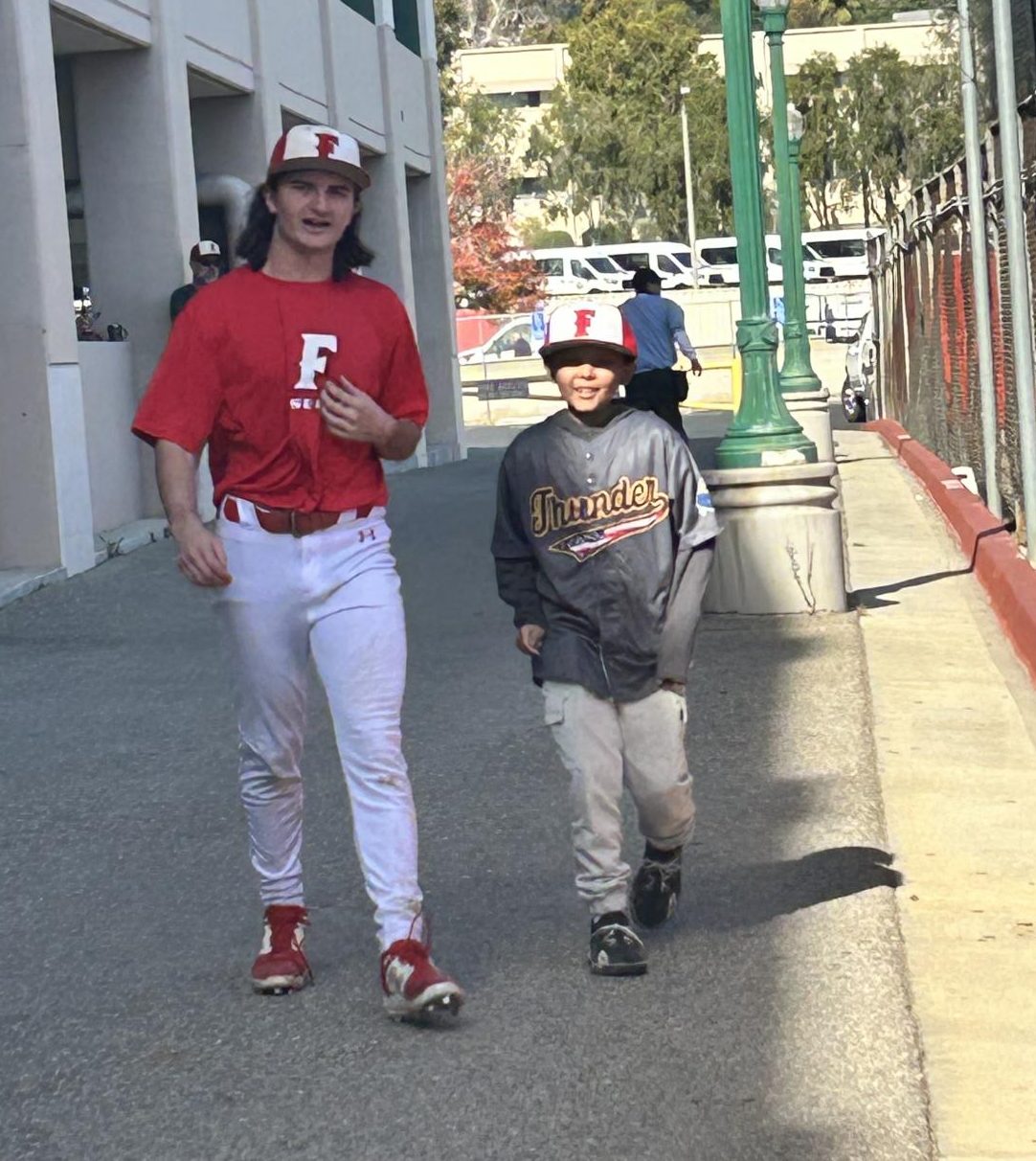
Marci Padgett’s work with Gold Rush allowed her to get connected with moms Sarah Carney and Anna Arceo whose sons Mikah Carney and Easton Arceo received pots of gold.
For Sarah Carney, it all started when Mikah was 4 years old. A bruise that wouldn’t heal, a cut that kept bleeding and a lack of appetite all pointed to a health concern.
After going to the hospital, Mikah’s results in the labs proved that things were actually serious and not just a small health problem. It wasn’t something that could be diagnosed in a regular hospital setting.
“They did labs on Mikah and discovered that they were all over the place. They wanted to transfer him to a children’s hospital for an exact diagnosis,” Carney said. “It was the next day that we found out that Mikah had leukemia.”
It was estimated that his treatment would last three and a half years. Although the estimate felt daunting to tackle, Mikah didn’t let cancer hold him back. It was while he was getting treatment that he actively started playing baseball and he excelled. His knack for baseball was leagues ahead of the draining treatment for cancer.
“He would go from chemo one day to the baseball field the next day,” Carney said. “It gave him an opportunity to have his mind off of treatment and cancer.”
Mikah completed his treatment for leukemia in November 2021. Everything seemed to go up from there. However, Mikah’s cancer returned in October 2022. This time, it was worse.
The cancer was now in his spinal fluid, and his treatment had to be amped up. With regular radiation on the brain and stronger chemotherapy sessions, the fight against cancer would be even more taxing on Mikah.
Even if the fight against cancer grew harder for him, the amount of love poured to Mikah and the rest of the Carneys also grew.
Padgett connected Carney with the Gold Rush foundation, and the organization delivered pots of gold for Mikah and his three siblings.
“The siblings are told they have to be tough and they have to be strong for their brother or sister, but truly their world has been turned upside down,” Carney said. “The fact that they get recognized and get some love as well, I really appreciate it.”
As part of the Carneys’ connection with the Gold Rush Cure Foundation, they received an invitation to attend the baseball game.
“I think at first Mikah was a little nervous. He didn’t know what to expect,” Carney said.
But upon stepping on the baseball field, Mikah saw there was another cancer patient, Easton. The two were immediately welcomed by the baseball team and took part in every step of the team’s regular routine. Everyone stretched, sat in the dugout, and offered gear to Mikah and Easton.
Once the game was over, Carney expected it to be the end of the offer. However, the team requested to play and practice for a full hour with the boys.
“None of them made Mikah feel like it was a burden anyway for him to be there. It was like they wanted him there,” Carney said. “It was simply just about boys who love baseball and hanging out, whether that was 10 year old boys battling cancer or high school boys who are loving us.”
Looking back on their journey, Carney noted that the first diagnosis of Mikah’s cancer was torturous for her. The doctor’s words of taking each step slowly was just rubbing salt in the wound. Yet Carney learned that finding the joy in each day was the key to her and Mikah’s perseverance.
“Mikah is young and he may not completely understand why he’s having to go through this. But I can see that it is shaping him and creating him to be a strong man that’s going to be able to help other people in the future,” Carney said. “One day, he’ll be a man that has compassion and has love for other people because of the way that he’s been loved on this journey.”
For Padgett, getting the two boys connected with the baseball team was really important in providing hope for the families in the midst of all of the treatments.
“Those kids, they feel like Fullerton baseball now is on their team. They’re getting backed by them,” Padgett said. “And from the parent’s perspective, to see your kid that happy, doing something that they love and then seeing other people embrace, encompass them and show them that love. It’s so special.”
Padgett said watching her son David work with the kids gave her a sense of gratitude and joy in how far David has grown.
“There is this photo of David and Easton side by side and them walking together. I just absolutely love that. In Easton’s eyes, David’s just everything he wants to be right now,” Padgett said. “Is David perfect? No. But is he thriving? Yes. In Easton’s eyes, David is his hero. I don’t think that there’s anything more that I would want for them. There’s hope beyond what they’re dealing with. David’s not perfect, but I’m so incredibly proud of him.”


